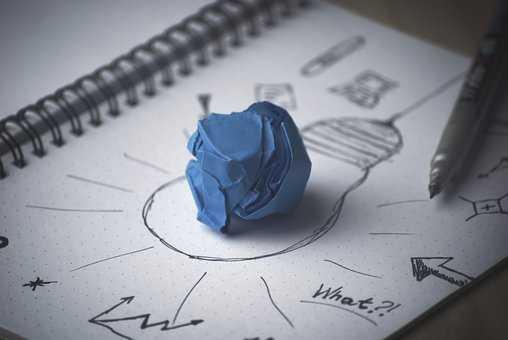5 Common Beliefs that Can Subtly Screw You Over
Curated from: markmanson.net
Ideas, facts & insights covering these topics:
7 ideas
·5.75K reads
11
Explore the World's Best Ideas
Join today and uncover 100+ curated journeys from 50+ topics. Unlock access to our mobile app with extensive features.
We all think our beliefs are correct
That is why we believe them. In reality, almost everything we believe will eventually be at least partially wrong.
Since some of our beliefs are probably partially incorrect, the best way to spot them is to question some basic beliefs and assumptions.
187
1.31K reads
Thinking “I know exactly what to do”
The reasoning behind this belief is that if you believe you know what you're doing, you'll have more confidence, and you'll do it better.
This may sound nice at first glance, but confidence can also make us justify our own position. We'll be less open to constructive feedback and likely ignore a lot of good ideas and better options. To adapt to change , you have to be open to be wrong in the first place.
198
896 reads
“It’s not fair”
The issue with this statement is with our definition of "fair." We do not know how much one person suffers and whether it's more or less than we do. We also don't know whether something we find terrible today isn't life's greatest gift ten years from now.
There are things in life we can control and things we can't. Put your time and energy towards those things you can control.
192
763 reads
Believing “More is better”
"More is better" is a trap we fall into even though most people understand that materialism and conspicuous consumption are really empty pursuits. We want to travel more, see more, do more, more friends, more options, more, more, more.
More options tend to make us more unhappy instead of happier. We have to focus on a handful of pursuits and people and focus on them passionately.
191
689 reads
Thinking “If I can just have X, then I’ll be happy”
Goals are great to have. You will be aimless without them. But goals do have some dangers. At times we become so obsessed with our goals that we sacrifice other parts of our life. And when we achieve our goals, if we're too invested in them, we feel empty afterwards.
Goals cannot make you happy. Goals are a means to an end, not an end in themselves. They are only supposed to give some direction.
204
710 reads
Common belief: “If it doesn’t help me, then forget it”
Self-improvement has one dangerous drawback: the sense that it's accomplishing something can become a low-level addition. In the process, it will gut your emotional life.
The most meaningful moments in life do not show up on your calendar or to-do list. There is often value in doing something that provides no value. Drink a beer, laugh with a friend, talk to your kid, read a book, then sleep a little too late.
184
648 reads
Learning to update your beliefs
We can never be 100% right about anything. There is always room for improvement. If your dating life is a continuous disaster, consider your beliefs about relationships, for example, believing that people are only interested in relationships for what they can get out of it. Or, if you're continually overspending, consider your beliefs about money.
If you keep running into the same problems over and over again in your life, it's probably time to update your beliefs.
191
739 reads
IDEAS CURATED BY
Laksh Bedi's ideas are part of this journey:
Learn more about personaldevelopment with this collection
The importance of networking in podcasting
How to grow your podcast audience
How to monetize your podcast
Related collections
Similar ideas
Read & Learn
20x Faster
without
deepstash
with
deepstash
with
deepstash
Personalized microlearning
—
100+ Learning Journeys
—
Access to 200,000+ ideas
—
Access to the mobile app
—
Unlimited idea saving
—
—
Unlimited history
—
—
Unlimited listening to ideas
—
—
Downloading & offline access
—
—
Supercharge your mind with one idea per day
Enter your email and spend 1 minute every day to learn something new.
I agree to receive email updates

